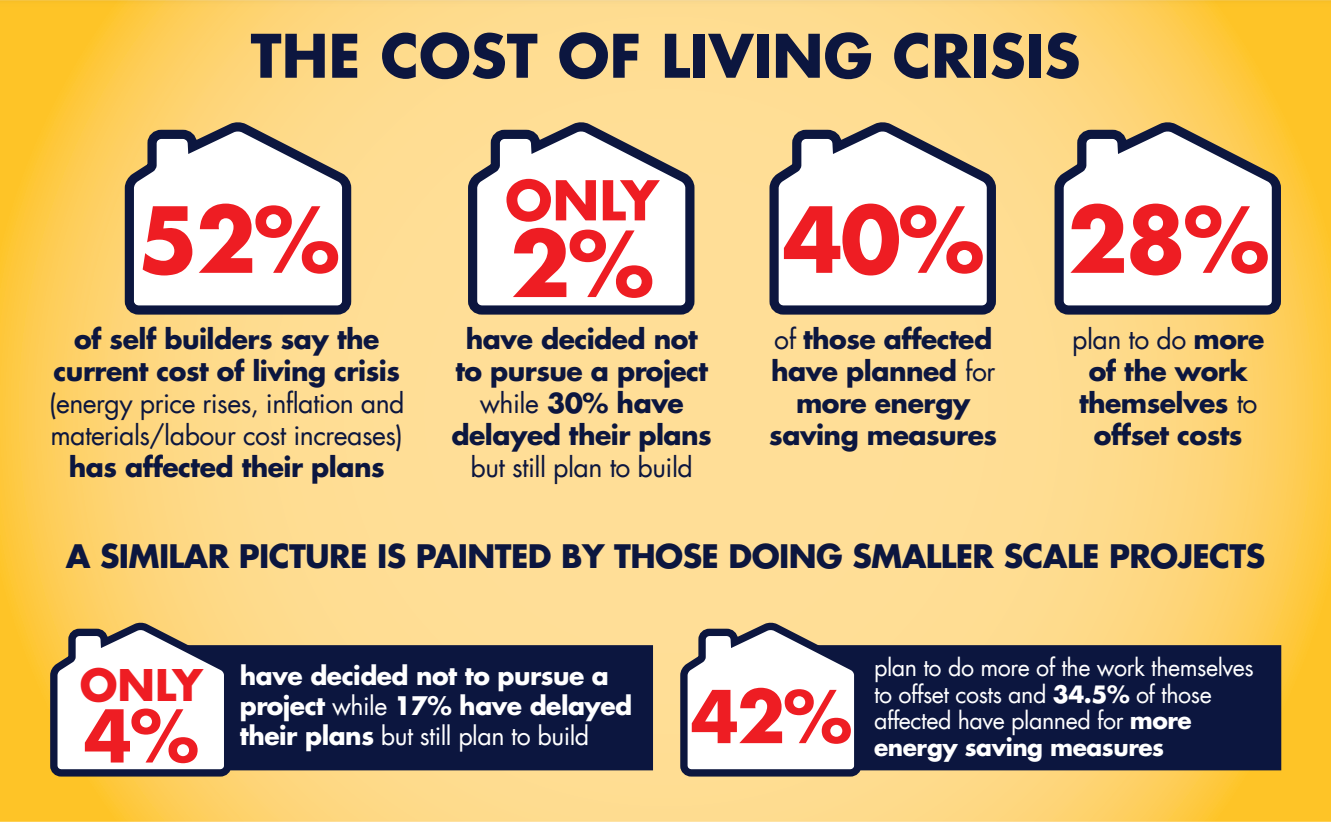Financially planning your self-build property
Finance is the natural starting point for any self-build project. Buying a plot, paying for professional services such as architect's fees and any site surveys required, plus the building itself. Searching for a self-build mortgage is vital to the success of any project. Self-build mortgages are different from standard mortgages because they can release funds at key project stages.
NSBRC survey shows a continued appetite for self-build but with adaptations

How to fund a self-build house project
There are several ways to fund a self-built house build including:
 Savings
Savings
 Equity from your existing home
Equity from your existing home
 A self-build mortgage
A self-build mortgage
 A combination of all three of the above
A combination of all three of the above
Self-Build Mortgages: What's available?
There are two types of self-build mortgages to choose from:
Arrears mortgages: Arrears mortgages tend to be used by self-builders who can finance part of their build. These mortgages provide payments across key build stages until it's complete.
Advance mortgages: This mortgage releases payments at the start of each stage. This removes the need for short-term or bridging loans to cover the build costs upfront.
Help to Build: Help to Build offers an equity loan from the government of between 5% and 20% of the estimated build cost (40% in London). You will still need a self-build mortgage to use this scheme, and they must be registered with Help to Build.
You get your equity loan and start to pay fees for it once your self-build home is complete. The government will pay your mortgage lender the equity loan, and your self-build mortgage will automatically switch to a repayment mortgage.
Self-build insurance: What does it cover?
Regardless of the finance option chosen, self-build insurance should be in place before starting work on-site. Building sites can be risky places. Accidents, theft, and unforeseen events can add significant costs to the budget. Despite this, it's surprising how many people do not have self-build insurance in place from the start of the project. A self-build insurance policy covers the owner, their builders, and the entire building site during construction.
Self-build insurance typically protects against the following:
Contractors All Risk’: covers the potential cost of repairing or replacing any damaged part of the build and covers fire, theft, vandalism, flood, and storm damage.
Employers' Liability: Anybody working on site is an 'employee,' and the self-builder is the main contractor, which means they are liable for their welfare and any injury, loss, or death while working on the build.
Public Liability: Protects against damage, injury, or loss suffered by third parties or the public. Public liability also covers damage to the property or injury to individuals outside the site if directly caused by the activities on site.
Legal Expenses: Legal expenses is for action taken against the self-builder by others or for the need to act against third parties.